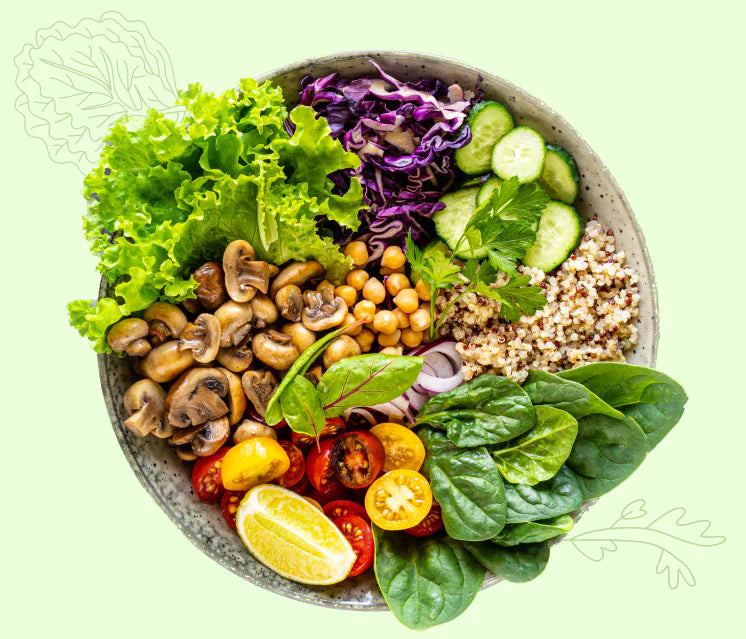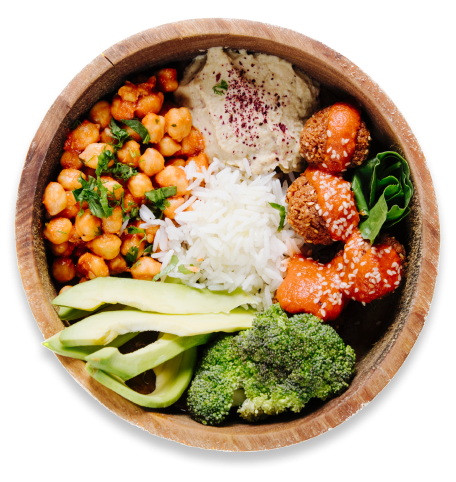Call Us 123456789
Free delivery on order over $200
Decoding the Labels: How Plant Power Guarantees Clean Ingredients in Your Healthy Meal Plan Dubai
Buy meal plan
Choosing a diet meal plan in Dubai is as much about trust as taste. In a city that values pace and performance, residents want healthy meal plans in Dubai that are transparent, minimally processed and culturally attuned. This guide explains how a clean-label approach works in practice and how to decode packaging so you can make informed choices with confidence.
The clean-label shift in the UAE
Across the GCC there is rising interest in foods that are simple, traceable and free from unnecessary additives. Consumers are reading labels more closely and favouring ingredient lists they recognise. The momentum aligns with Dubai’s preference for practical health solutions that fit busy routines without compromising standards.
What “clean” really means
A sensible clean-label framework rests on four pillars.
• Natural ingredients with no artificial flavours, colours or synthetic preservatives.
• Simplicity so ingredient names are familiar.
• Transparency about sourcing and methods.
• Minimal processing so techniques feel kitchen-ready rather than industrial.
Together these pillars create a filter you can apply to any packaged item or delivered meal.
How to read an ingredient list
Start with order. By law, pre-packaged foods in the UAE and wider GCC list ingredients in descending order of quantity. This single rule helps you judge the intent of a product at a glance. If whole foods lead the list you can expect a more nutritious profile. If refined sugars or isolated starches appear early, proceed with caution.
Language and core disclosures
Labels must be readable in Arabic or bilingual Arabic and English. Key details such as product name, ingredient list, net quantity, storage instructions and date markings must be clear and indelible. These basics matter because they support everyday decisions about freshness and suitability.
From regulation to everyday choice
Official rules set a safety floor. Your daily standard can be higher. Use the first three to five ingredients as a quick quality check. Favour whole grains, legumes, vegetables and straightforward proteins like tofu or pulses. Treat long strings of emulsifiers, stabilisers and artificial sweeteners as a sign to compare alternatives.
Minimal processing in practice
Clean processing uses methods a home cook would recognise. Steaming, roasting and gentle sautéing preserve structure and fibre. Short ingredient lists reduce the need for thickeners and texture agents. In a meal-plan context this means recipes designed for flavour without excessive reliance on additives.
Protein quality without the noise
Plant proteins vary, yet thoughtful menus pair sources to provide a complete amino acid profile. Combinations such as legumes with grains are time-tested. Where isolates are used, the focus should be on clear sourcing and prudent use, keeping whole foods at the forefront.
Sodium, sugar and fibre
Three numbers shape the experience of a plant-based plan. Sodium should be sensible to support cardiovascular health. Added sugars should be modest so energy remains steady. Fibre should remain high because it supports satiety and gut health. When labels disclose these clearly, comparison becomes straightforward.
Traceability and kitchen standards
Modern meal services can enhance trust through auditable systems that track ingredients from supplier to kitchen. Even without specialist tools, you can look for simple markers of care: consistent dating, plain-language descriptions and menus that rotate to favour freshness. Dubai’s Food Code encourages establishments to meet high compliance standards that underpin this everyday reliability.
Where the menu reflects the promise
A clean-label approach should show on the plate. The service’s menus highlight whole-food dishes with concise descriptions, such as Hearty Quinoa Waffles, Indian Zucchini Pancake with Chutney, Mixed Veg Stir Fry on Cauliflower Rice and Baked Stuffed Bell Pepper with Couscous and Avocado Salsa. These examples prioritise grains, legumes and vegetables rather than ultra-processed substitutes.
• Breakfasts that set the tone: Morning choices like Rolled Overnight Oats with Dates and Nuts or Wild Rice and Rocket Salad with Balsamic Maple Vinaigrette demonstrate gentle sweetness and a fibre-forward design ideal for Dubai’s climate and busy routines.
• Lunches built for clarity: Midday dishes such as Green Lasagne with Vegan Mozzarella or Carrot and Edamame Rice Rolls with Sesame-Ginger Dip maintain simple techniques, clean ingredients and light sauces to support digestion and afternoon focus.
• Snacks with purpose: Snacks such as Cranberry Muffins made with recognisable pantry ingredients complement a balanced day without resorting to highly processed items.
How clean labels meet Dubai living
The city rewards structure. Fixed delivery windows, clear reheating notes and rotating menus remove guesswork. A service that explains sourcing in plain terms and aligns meals to familiar regional flavours will integrate smoothly with office life, family routines and training blocks.
Verifying the claim
Trust is strongest when brands share the how, not just the what. Look for pages that explain menu design, chef and nutrition input, and a commitment to fresh, plant-based cooking across the week. Public information that describes flexible delivery and a broad rotating menu helps you understand what will arrive at your door.
The role of Plant Power’s own guidance
The brand’s site outlines its mission and service model, including vegan meal plans designed for convenience with fresh ingredients and flexible delivery across Dubai. This provides a useful reference point when you compare providers on clarity, menu breadth and day-to-day practicality.
A simple label-decoding checklist
• Read top to bottom. Prioritise whole foods in the first lines
• Scan for added sugars and salt. Prefer modest levels with fibre intact.
• Review additives. Fewer is better and sources should be clear.
• Confirm language and dates. Arabic or bilingual labels with indelible production and expiry details indicate sound practice
Conclusion
Clean-label eating in Dubai is achievable with a little label awareness and an eye for simplicity. Regulations provide transparency, but individual choices define higher standards. Opting for menus centred on whole plants, clear labelling and UAE-compliant preparation supports lasting focus and energy.
Plant Power exemplifies how a vegan meal plan can unite taste, trust and convenience through recognisable ingredients and simple cooking methods. As Dubai embraces health and sustainability, this approach offers a practical model for clean, balanced eating that fits modern city life.
What are you waiting for?
It’s time to kickstart your health journey with nourishing and delicious meals to boost your energy and overall health!
